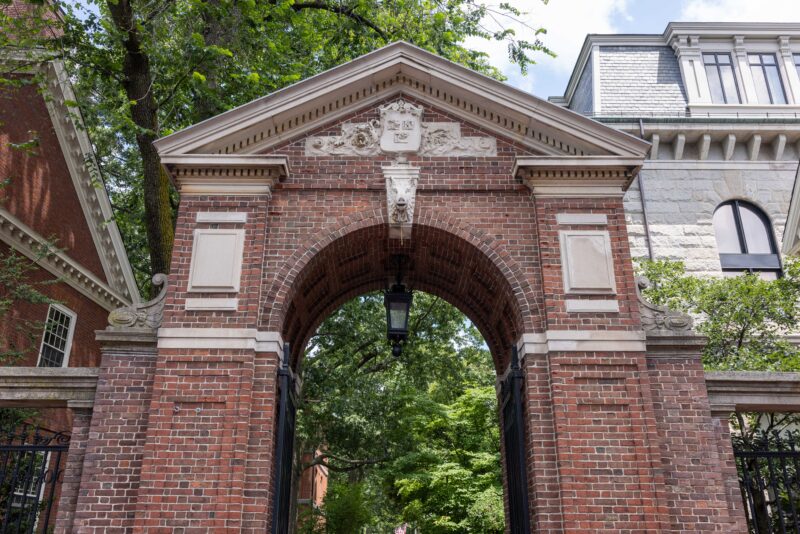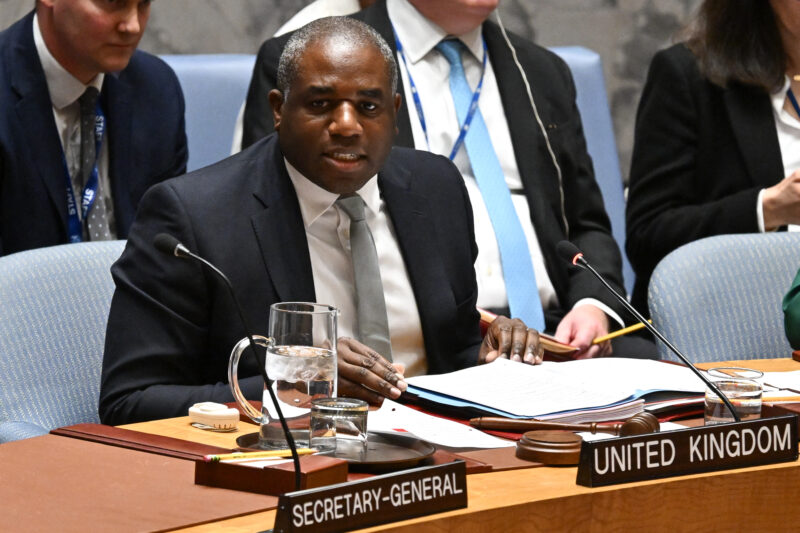Finer: ‘Step forward for the Palestinians… will have to be a piece’ of Israel-Saudi normalization
Jon Finer discussed normalization, the potential for strikes on the Houthis and the Palestinian Authority at the Aspen Security Forum

Julian Haber | Aspen Security Forum)
Deputy National Security Advisor Jon Finer speaks at the Aspen Security Forum on Thursday, Dec. 7, 2023.
Tangible progress for the Palestinians must be part of any future Israeli-Saudi normalization talks, Deputy National Security Advisor Jon Finer said in comments at the Aspen Security Forum in Washington, D.C., on Thursday.
Finer said that “a step forward for the Palestinians” is “an important part of Israeli-Saudi normalization. We believe the Saudis would support that too, and I think especially in the current context, in light of the conflict that’s broken out, that will have to be a piece of the puzzle going forward.”
The deputy national security advisor highlighted this priority as a key difference between how the Biden and Trump administrations handled normalization talks. As part of the original Abraham Accords, Israel agreed to halt plans to annex portions of the West Bank.
Finer said the U.S. hasn’t launched retaliatory strikes on Yemen in response to Houthi attacks in the Red Sea this week, which were intercepted by a U.S. warship, because the U.S. has not determined that U.S. assets were the target of those attacks. Some U.S. lawmakers are pushing for direct strikes on Yemen.
“If we determined… that there was a targeting of U.S. assets, whether those were U.S. civilian assets or U.S. military assets, that would be a much more severe escalation but we have not made that calculation yet,” Finer said.
The U.S. has not, however, ruled out the possibility of military action against the Houthis, he added. “If there is a decision to escalate against us, we will look at other options.” In the meantime, the U.S. has increased sanctions and is working to build a multinational task force to secure Red Sea shipping lanes.
Finer drew a direct line between the increased attacks by the Houthis and the Yemeni militia group’s patrons in Iran.
“The Houthis would not be able to do this without the support of Iran. Would not be able to do it,” Finer continued, nor would they have the “motivation” to carry out such attacks. He said the Islamic Revolutionary Guard Corps is involved in the attacks, including planning and authorization.
Discussing Washington’s hopes for a revitalized Palestinian Authority as the post-war governing authority in Gaza, Finer said the U.S. is “not necessarily” seeking the removal of President Mahmoud Abbas, who has stayed in office for more than a decade past the end of his elected term.
Finer acknowledged that there are issues with the PA but said, “there is no other game in town right now in terms of organized, institutionalized Palestinian political entity.”
“They are taking a lot of fire, sometimes on the Hill, sometimes in the government of Israel, but right now they are cooperating very closely with the IDF, despite the fact that this is not exactly a popular decision for them to do this,” Finer continued. “Is the PA perfect? Is the PA not in need of additional legitimacy?… We absolutely agree with that… but they are also going to be an essential part of any Palestinian future.”
Despite reports that the U.S. has warned Israel that its international credibility for its large-scale operations in Gaza is running thin, Finer said the U.S. has not given any “firm deadline” for Israel’s operations in Gaza.
“We are not in the business of being that prescriptive with a core partner and ally who has suffered such an egregious, appalling terrorist attack and who is responding with what is, in our view, with what is absolutely necessary and their responsibility to reduce the threat to their own civilian population,” Finer said. “Not really our role, this is their conflict.”
He said the U.S. is, however, seeking to use its influence to steer the conflict “in the most constructive way… possible” and ensure Israeli compliance with international law.
He said there is significant evidence that the U.S.’s influence has been having a “positive impact” on the course of the war, including increased humanitarian assistance, safe passage for foreign nationals out of Gaza and the weeklong pause and hostage release.













































































